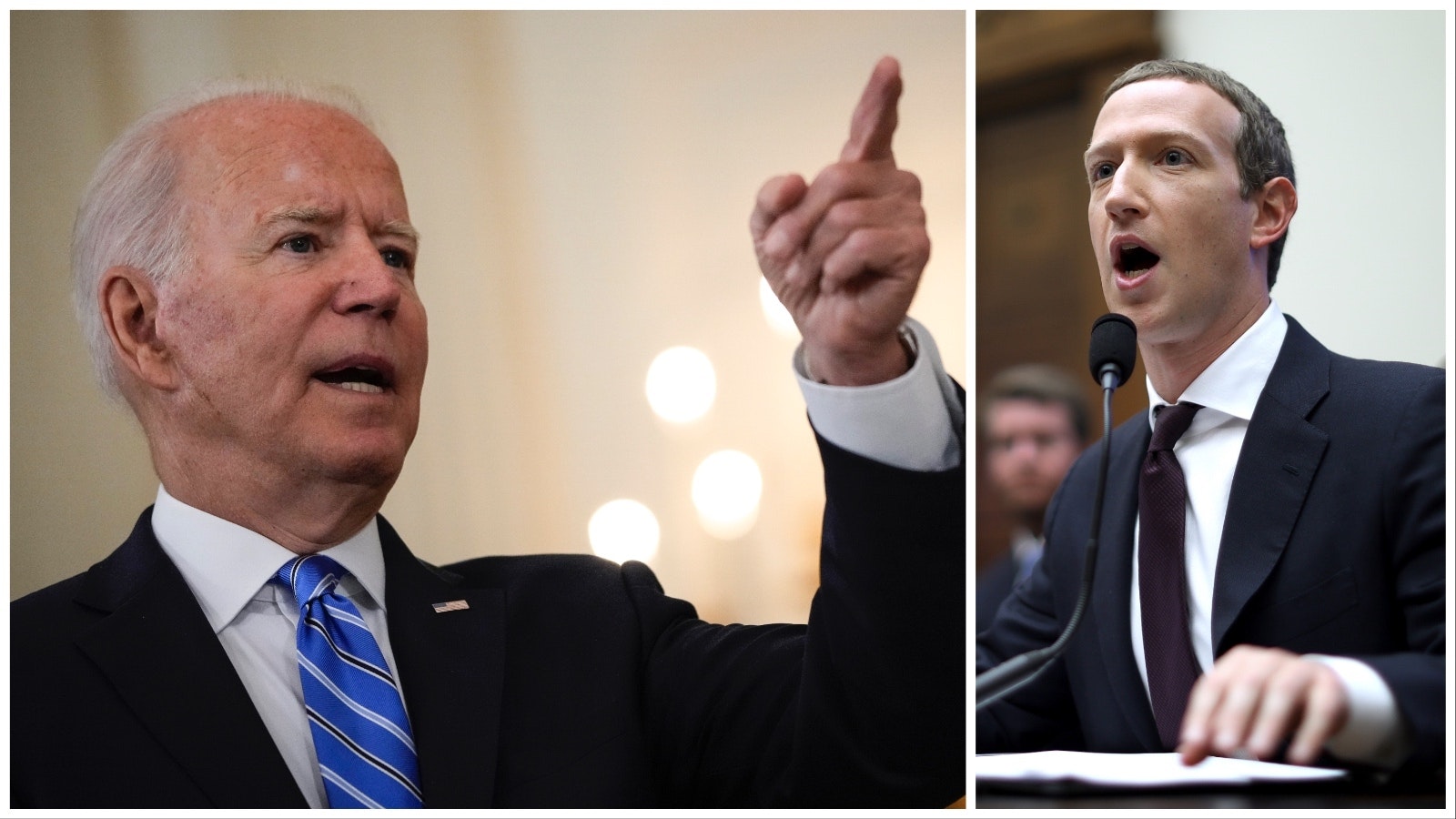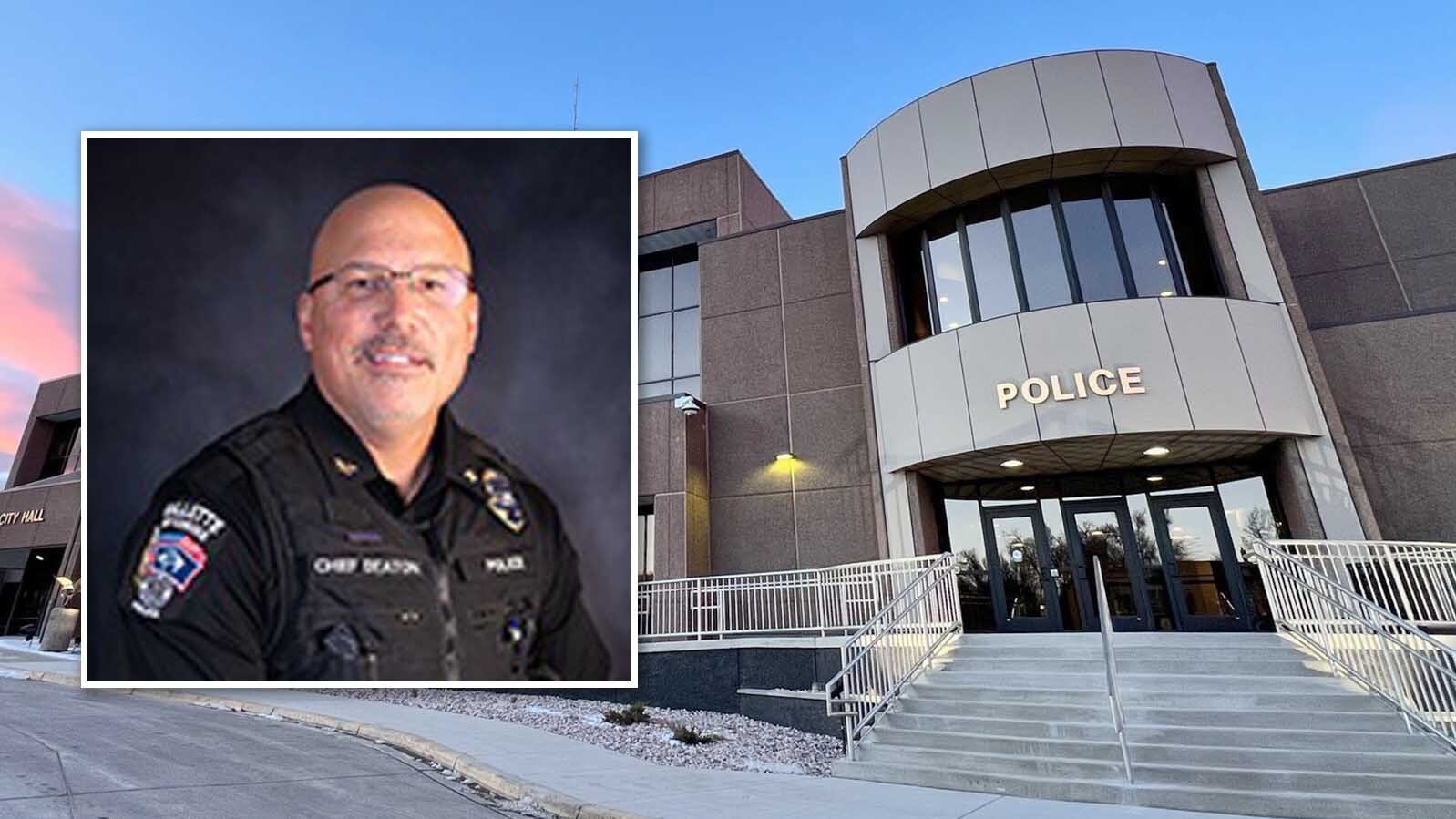The federal government wasn’t coercing social media companies when top officials demanded the banning and censorship of key opponents of its favored COVID-19 and other narratives, President Joe Biden’s attorney argued Thursday in federal court.
The claim was just one portion of a rapid-fire oral arguments in the 5th Circuit Court of Appeals in Missouri v. Biden, a free speech challenge of the administration’s push for social media platforms to target information it deemed unacceptable.
Lawyers for Missouri and Louisiana urged the federal appeals court to keep in place a July 4 preliminary injunction by federal District Court Judge Terry Doughty blocking federal agencies from pressuring social media companies to censor protected speech.
The lawyer for the Biden administration countered, saying Doughty had no proof the federal government was being coercive, and Louisiana and Missouri don’t have standing to argue against its actions.
The three-judge panel of Judges Edith Brown Clement, Jennifer Walker Elrod and Don R. Willett are considering the arguments and whether to throw the injunction out, keep it in place or keep it for 10 days only so the federal solicitor general can apply for a U.S. Supreme Court hearing on it.
The Federal Government And The Mafia
“The sort of pressure we’re talking about is, you know, relates to, the government is generically going to be angry; the government might make public statements against somebody,” said Daniel Bentele Hahs Tenny, a Washington, D.C., attorney, arguing that these gestures aren’t coercion.
“Yes, that might influence people. People might want to get on the president’s good side – “
Judge Walker Elrod interrupted him.
“What appears to be in the record are these irate messages from time to time, from high-ranking government officials, saying, ‘You didn’t do this yet’ – and that’s my toning down the language,” said Elrod. “It’s like ‘Jump,’ and ‘How high?’”
Elrod was referring to the lengthy discovery in Missouri vs. Biden from Doughty’s court, wherein Rob Flaherty, former deputy assistant to the president, demanded in a July 15, 2021, email to Facebook to know why certain COVID narratives were spreading.
“Are you guys (f***ing) serious?” wrote Flaherty. “I want an answer on what happened here and I want it today.”
Using some rough language isn’t the same as making a threat, Tenny responded.
“If you were saying … ‘We’re going to impose some penalty,’ that’s not the way you’d go about it,” said Tenny. “You wouldn’t say, ‘I’m really mad.’ You’d just say, ‘Do this or else,’ and the ‘or else’ would be really clear.”
Elrod challenged this notion.
She used what she called the “inapt” analogy of mafia organizations, whose members often make threats apparent without saying them.
“I’m certainly not equating the federal government with anybody in illegal organized crime,” said Elrod. “But there are certain relationships where people know, without always saying ‘or else.’”
Why The Sneaking Around?
Judge Don R. Willett asked Tenny why the government couldn’t just post its position publicly. Why had it resorted to near-constant private meetings and communiques with social media executives?
“It seems perfectly fine in my view for the government to call out publicly someone for posting or publishing something the government believes is false or believes is dangerous. That passes First Amendment muster with flying colors,” said Willet. “But here you have the government in secret, out of the public’s eyes, relying – as Judge Elrod described – kind of strong-arming.”
Tenny said that Doughty even enjoined the federal government’s public proclamations that Willet had just described as constitutionally sound.
He drew inferences to public statements by former White House Press Secretary Jen Psaki and others, warning that if social media companies did not censor vaccine “misinformation” the Biden Administration would look at reforming anti-trust and social media liability laws.
The plaintiffs characterized these statements as coercion. Tenny said that’s ridiculous.
“The idea that … the president is unilaterally going to amend Section 230 or the antitrust laws is far-fetched,” Tenny said.
Is Deception The Same As Coercion?
Doughty said in a July 4 memorandum filed alongside his injunction that the federal government censored narratives that weren’t necessarily lies.
Agencies called for suppression of “true but shocking” COVID-19 vaccine adverse reactions and the Great Barrington Declaration, and the FBI allegedly primed social media companies to treat the Hunter Biden laptop story as foreign disinformation.
Elrod asked Tenny if this makes a difference.
“If the government knows secretly that certain things do have health consequences – or don’t have health consequences – but don’t want that to be the message, just hypothetically, and says the opposite to social media companies to propagate the message,” said Elrod, “does it matter whether they’re lying or they’re wrong?”
The concept of deception surfaces in the plaintiffs’ allegations about the FBI working to de-legitimize the Hunter Biden laptop story before it emerged, said Tenny, adding that theory lacks evidence.
All the FBI did was say “no comment” after Facebook asked whether the Hunter Biden laptop story was Russian disinformation, Tenny said.
It’s normal for the FBI not to comment on investigations before they’re public, added Tenny.
Lying Is Leading
Dean John Saeur, attorney for the states, chimed in during his allotted argument time, saying the FBI did in fact deceive social media companies and it amounts to coercion to be that deceptive.
“They deliberately seeded the platforms with misleading information: ‘Oh a hack and dump is coming; there’s rumors it’s going to involve Hunter Biden,’” said Sauer. “And they had the laptop in their possession. … They knew it wasn’t Russian disinformation.”
Doughty found it was a deliberately misleading course of deception and declared it a form of coercion, Sauer added.
A Book Bonfire
Sauer in his opening remarks compared the administration’s actions to mass book burning.
“Imagine a scenario where senior White House staffers contact book publishers (and sellers),” he said. “And say, ‘We want to have a book-burning program. We want to identify for you the books we want burned. The books that criticize the administration and its policies – and we want to be partners. And here’s 12 authors we want you to pull off the shelves and burn; these are the really bad ones.’”
Sauer was drawing a comparison to the Biden administration’s demands that social media companies de-platform the “disinformation dozen,” a group of doctors and other activists who generally oppose COVID-19 vaccines.
Democratic presidential candidate and attorney Robert F. Kennedy Jr. is on the list.
Sauer continued his analogy, asking the judges to imagine how they’d react if all the bookstores organized a massive book bonfire days after the federal government dispatched emails with “implied threatening comments” and top officials lost their temper and used “the F-bomb.”
What About Tucker Carlson
The government’s top targets included investigative independent reporter Alex Berenson and former Fox News personality Tucker Carlson, who is now a rogue reporter, Sauer said.
“The most persuasive speakers, the ones who were most effective at rebutting the government’s preferred messages, (and it said) ‘Take those speakers down,’” he said.
But Elrod grilled Sauer just as hard as she’d grilled Tenny.
“Does it matter if they want to do it anyway?” asked Elrod.
Sauer said it doesn’t. Even if the government’s threats turn out to be empty and the social media companies agreed with them all along, the government still can’t make “implied threats” to enforce its narrative.
He appeared to disagree with the hypothetical, however, and pointed to times when Facebook resisted censorship efforts prior to the government’s alleged threats.
A Facebook official in May 2021 had cited experts positing that censoring vaccine-hesitant posts could backfire, making people think there was a “cover-up.”
Why Are You Here
Missouri and Louisiana have standing to be in the case, Sauer argued, because the federal government has censored their protected speech efforts. They have a legitimate interest in knowing what their constituents value and argue in unfettered public debate. Their constituents should be able to organize to petition the federal government for a redress of grievances, and they have a quasi-sovereign interest in unfettered debate.
Tenny said the states can’t combat the government’s content-moderation efforts in court because they failed to demonstrate they’ll be impacted by censorship in the future.
Tenny wouldn’t go so far as to argue that Missouri vs. Biden is now moot, but he said the content-moderation efforts the government deployed during COVID aren’t likely to be repeated outside of a pandemic.
Clair McFarland can be reached at clair@cowboystatedaily.com.





